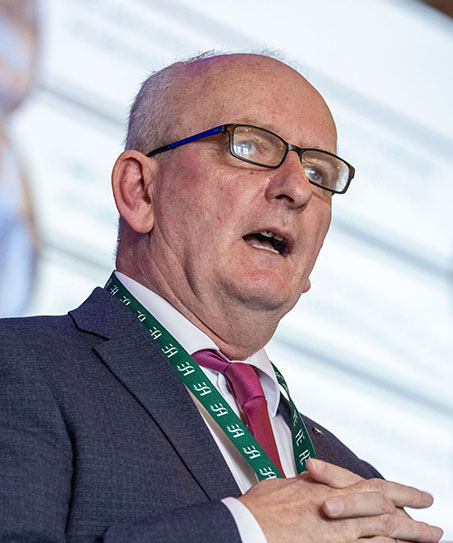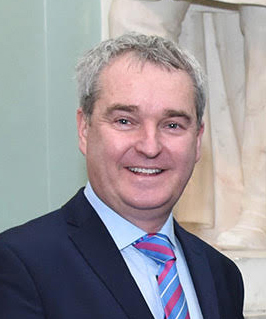Paul Mulholland examines the work of the productivity and savings taskforce in relation to reducing costs within the health service


Earlier this year, the Minister for Health requested the HSE CEO and the Secretary General of the Department of Health co-chair a new productivity and savings taskforce. The aim of the group is to optimise patient care within the constraints of current funding. While reducing waiting lists is a key part of its remit, this article will examine work in relation to savings.
The taskforce held its inaugural meeting in January, where several cost-saving areas across the HSE were identified. A major focus was to be on reducing agency and overtime expenses. Meeting minutes stated this would build on progress made in late 2023, when agency costs were cut by 10 per cent in the fourth quarter. The meeting also heard that agency use would be closely tracked through the Pay and Numbers Strategy. This sets limits on pay expenditure at local/site level. Managers would be free to use all or some of the levers listed, “however, they will be expected to manage within their pay bill limit.”
Medicines
It was also agreed that the new medicines sustainability taskforce would provide regular updates to the productivity and savings taskforce to ensure a centralised overview.
Key actions in the area included conducting a horizon scan for drugs coming off-patent over the next three years, speeding up the approval process for new generic drugs, and accelerating the setting and application of reference pricing for generics and biosimilars. Increasing the use of these lower-cost alternatives was another priority.
The meeting then discussed how savings could be generated through greater centralisation of procurement and standardisation of goods and services.
These issues were on the agenda of the taskforce’s two February meetings. An update from the medicines taskforce, which also held its first meeting in January, was provided to the meeting on 1 February. According to the update, the area of oncology and the oncology drugs management system was a particular focus.
The HSE delivered a presentation on procurement at the meeting. The taskforce heard that there was increasing compliance with Office of Government Procurement frameworks “where feasible”. The Executive was targeting an increase in its spend under management (SUM), from 75 to 85 per cent. This initiative seeks to ensure that a larger share of the HSE’s spending is governed by formal contracts, thereby enhancing compliance with supplier agreements.
“It was agreed that local sites would have flexibility to achieve procurement savings and would be supported with central guidance on stock utilisation and reducing spend on travel, training, catering, etc, to grow services.”
The meeting was also told that the HSE’s new integrated financial management system (IFMS) can function to prevent purchasing outside of contracts. However, the implementation of this system has been subject to significant delays.
In March, the taskforce was informed the medicines work programme would target initial quantifiable savings of €20 million in 2024. This would be achieved through: Increasing best value medicine penetration rates; updating the interchangeable medicines lists; and enhanced expenditure controls across hospital and national schemes.
It was noted that the medicine group would focus on the top 50 most frequently used drugs and identify savings of drugs coming off patent.
Regarding pay bill costs, the March meeting heard that a proposal was with the Minister for Health.
“It was further noted that pay bill savings will not be full year in 2024 and will be pro-rated for the remainder of 2024 based on the date of introduction of any pay bill control measures,” according to the minutes.
It was discussed how the HSE proposed to reduce the acute non-pay deficit by directing regions to stay at the 2023 non-pay outturn or work primarily within the 2024 budget.
Achieving this target would reduce the size of any potential supplementary estimate for 2024, attendees heard.
The proposal was to be communicated to HSE management once it was agreed with the taskforce.
At the next meeting, in April, attendees were informed the memo giving effect to the measure was issued to management on 29 March. It was also communicated to the six new regional executive officers.
Cost-cutting is not the overall objective of this group
Residential care
A discussion took place on the cost of care in residential care facilities. Issues discussed include comparing public and private costs, management of workforce, and increasing occupancy. The HSE agreed to identify measures that could enable savings.
There were cost pressures on home support and nursing home beds due to aids and appliances. The meeting heard there was concern “they would exceed budget”.
On 1 May, the taskforce was told an analysis of the drivers of expenditure in cost of care in residential care facilities was to be undertaken through 10 site visits.
A second meeting of the taskforce was held that month on 28 May. There was discussion about how the medicines taskforce aimed to publish an action plan showing initiatives and savings in June. It was also agreed this group would provide a table to monitor and track savings, which will be published.
Medication was the sole item on the agenda in relation to savings for the June meeting. The taskforce was informed that the HSE would support reimbursement of lower cost medicines unless a valid reason could be given for prescribing the higher cost alternative.
The June meeting is the last for which minutes of the taskforce are publicly available.
HSE financial position
At a June meeting of the HSE’s audit and risk committee, the Chief Financial Officer (CFO) Stephen Mulvany presented an update on the organisation’s financial position as of April 2024. A draft report showed a year-to-date deficit of €809.2 million.
The CFO explained that adjusting for the timing of certain funds, including €392.2 million held by hospitals in December and a €55.1 million cost for the 2024 pay award, the deficit would reduce to €508.3 million for the first four months of the year.
The committee also reviewed the cash forecast for 2024, which is expected to fall short by between €1.473 billion and €1.706 billion. This aligns with the previously stated €1.5 billion shortfall noted by the CEO and Minister for Health.
Oireachtas committee
On 18 September, the Secretary General of the Department Mr Robert Watt and the HSE CEO Mr Bernard Gloster, provided an update on the work of the taskforce to the joint Oireachtas health committee.
“Cost-cutting is not the overall objective of this group,” Mr Watt told the committee.
“We are making the budget go further and maximising resources to deliver more with what we have.”
“We are seeking savings across the management consulting budgets, medicine spend, and non-pay expenditures. While this is challenging against a backdrop of high demand, these targets are intended to focus the service on where we are spending more in a cost-effective manner.”
Mr Gloster said that in June, the HSE, with the agreement of the Department of Health and the Department of Public Expenditure and Reform, had “achieved a very strong and certain position for our cash budget”. He added this enables the Executive to plan to the end of 2025.
“Introducing a new control environment for both pay, referred to as the Pay and Numbers Strategy, and non-pay is a critical factor in an overall productivity-centred approach,” he said.
“By the end of 2025, that control environment will have fundamentally altered in its impact and the certainty regarding the resources we have and the value the public gain from them.”
During a discussion with members of the committee, Social Democrats Deputy Róisín Shortall pointed out a redacted section on “targeted savings” in the action plan provided to members for the meeting.
Ms Louise McGirr, Assistant Secretary for Resources at the Department of Health, explained that the redacted figures include pay-related savings.
“The figures are redacted because we have not reached full agreement on the overall pay bill, so we cannot yet confirm the exact savings,” she said.
Ms McGirr noted that there was an agreement with the Department of Public Expenditure, NDP Delivery and Reform and relevant Minister over the summer regarding the total amount. However, she clarified: “No additional funds have been allocated to the health or HSE budget at this stage.”
“These targets will be published,” she added.













Leave a Reply
You must be logged in to post a comment.